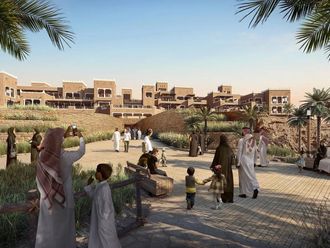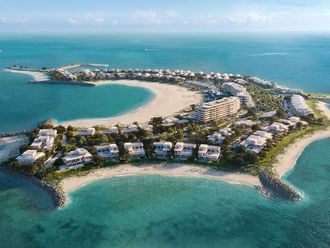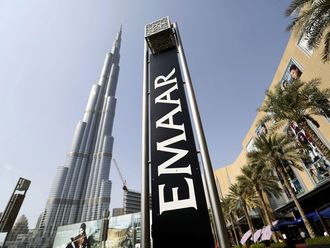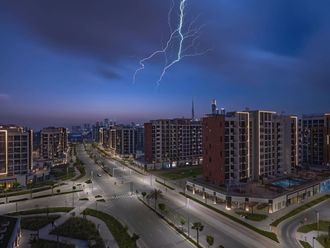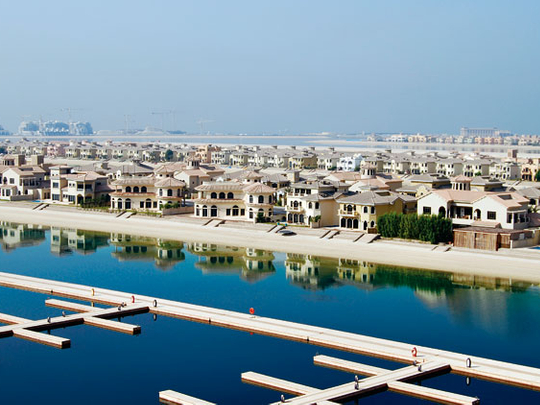
With prices falling all year, investors considering investing in Dubai's property market should be cheered by news that its taxes are among the lowest worldwide.
For the high-net-worth individual, however, Monaco may hold more appeal. The hot spot for high rollers runs almost neck and neck with the shiny emirate. Property taxes are 3.6 per cent of the purchase price over five years in Dubai, just marginally more than Monaco at 3.5 per cent.
Currency shifts, wealth flows, tax changes and fluctuating levels of supply and demand have all had a bearing on the performance of prime residential markets worldwide. As the rate of price growth slows in many global city markets, transaction costs and taxation are becoming increasingly important considerations for investors.
Accounting firm EY and real estate agency Knight Frank compared 15 different markets worldwide in their Global Tax Report 2015. The report analysed the buying, holding and selling costs for foreign buyers of prime residential property from 2010 to 2015.
“When purchasing property as an investment, tax is not necessarily the first concern but it is important because it is often the after-tax return that measures the success of the investment,” says Carolyn Steppler, Private Client Tax Services Partner at EY, UK & Ireland. “Our research shows that the tax burden across the cities in this report varies considerably both in amount and extent, from 3.5 per cent or 3.6 per cent of the property price in year five in Monaco and Dubai respectively, to over 30 per cent in Sao Paulo.”
Steppler cautions that prime property buyers would need to contend with rising taxes in the years to come. “A common thread across all these countries, which shows no sign of slowing, is a continuing focus on property as a source of taxation,” she says.
Paris follows Monaco and Dubai offering low tax levels for non-residents purchasing property at the $1-million (Dh3.67 million) level. Investors here incur combined tax charges of 3.6 per cent and 7 per cent respectively over the five year period. This level of taxation remains roughly the same when purchasing a $10-million property however Paris sees its percentage figure jump to 12.8 per cent.
Taxation is highest in Sao Paulo both at the $1-million and $10-million level, costing investors 31.5 per cent over the five year period. It is followed by Hong Kong. Investors here are charged 22.4 per cent of the $1m property cost over a five year period but Sydney replaces Hong Kong at the $10-million mark charging foreign buyers 26 per cent in tax.
Purchase costs
When it comes to purchase costs, Shanghai offers the best value, ahead of Mumbai, Hong Kong and Singapore. “We are often asked how property costs and taxes compare around the world,” says Liam Bailey, Global Head of Research at Knight Frank. “Whilst Shanghai and Monaco offer favourable property and taxation costs (2.9 per cent and 3.5 per cent respectively), other cities have produced interesting results. Hong Kong and Singapore for example, offer low property costs at 3.7 per cent and 4.3 per cent respectively for a $1-million (Dh3.67-million) property but the stamp duties for foreign buyers mean taxes are relatively high at 22.4 per cent and 19 per cent respectively.”
The overall property costs remain largely the same for a $1-million and $10-million property in some cities (Sao Paulo, Mumbai, Geneva) whilst others see a significant reduction in percentage terms at the $10m level (New York and Paris).
Dubai scored here too, with 5.5 per cent for a $10-million property and 8 per cent for a $1-million property.
However, at the top end of the market, where property costs are highest, Knight Frank and EY have determined Paris (15.3 per cent), Berlin (13.3 per cent) and Geneva (12.6 per cent) to impact foreign investors with the highest property costs at the $1-million mark. Geneva replaces Paris when considering property costs at the $10m level, charging investors 13.2 per cent of the five year sales price, followed by Berlin (11.3 per cent) and Monaco (10.8 per cent).
London, a preferred target for Gulf investors, sits neatly in the middle of the 15 cities when analysing both property costs and tax costs. Foreign investors are charged 7.8per cent and 5.4per cent respectively in property costs when buying at the $1-million and $10-million level. Looking at the tax costs – including stamp duty land tax, investors buying in their own name expect to pay 9.7per cent for $1-million investment and 20.7per cent for $10-million.
Policymakers are increasingly using tax and property costs as a means of regulating housing demand, controlling affordability and generating revenue. It will be interesting to see how the current situation in each of the 15 cities will change in the coming years.


